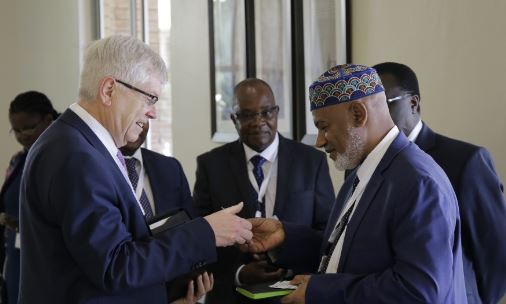Center for Agriculture and Bioscience International (CABI) has welcomed Ethiopia as its 50th member country where it will enjoy a range of benefits including input into CABI’s global development agenda, links to its international network of partners as well as regular consultations to address members’ needs.
Dr. Trevor Nicholls, CEO of CABI, confirmed the signature of the UN-level Treaty on CABI International by the Government of Ethiopia to bring the country into membership of CABI.
The application process of CABI Membership was led by Ethiopia’s Ministry of Agriculture, with whom CABI has a long and beneficial partnership.
Mr. Sani Redi Ahmed, the State Minister, Ministry of Agriculture, who had been championing for Ethiopia’s membership of CABI, said, “The Government of Ethiopia is committed to maximising its potential to ensure greater food security for its citizens as well as extend its capabilities for export of key cash crops including coffee.
“We look forward to working with CABI further in respect of trade, commodities and value chain development, and market access while looking to build better Sanitary and Phytosanitary Systems (SPS), Pest Risk Analysis (PRA) and other aspects of quarantine for invasive species management.”
Other benefits of membership with CABI that Ethiopia now receives include voting rights at CABI Review Conferences and Executive Council meetings as well as access to CABI’s broad range of products, services, programs, and project deliveries and capacity-building activities.
Dr. Nicholls said, “Membership of CABI will not only consolidate existing relations with Ethiopia but will also strengthen our relationship and shared goals of enhancing the country’s capacity to address and mitigate the rising challenges posed by crop pests and diseases amid a changing global climate.”
Ethiopia’s membership of CABI will greatly enhance CABI’s position and capability in helping ensure food security and achieve SDGs in Africa and globally.”
Ethiopia has a large domestic market of over 100 million people, making it the second-most populous country in Africa after Nigeria and has experienced one of the fastest-growing economies in the world.
Source: FBC




